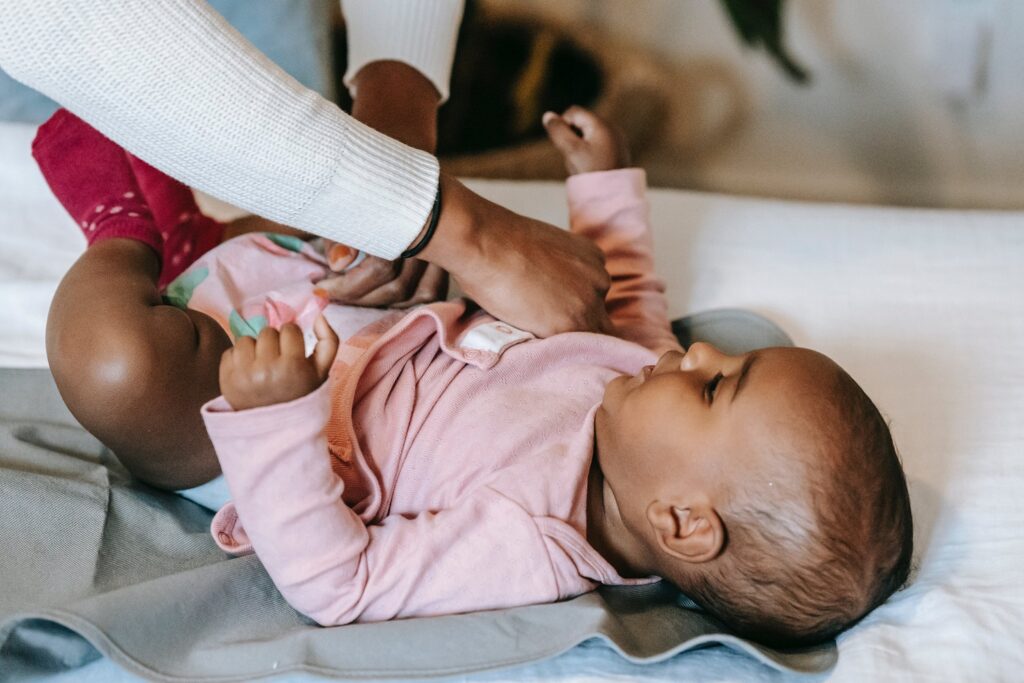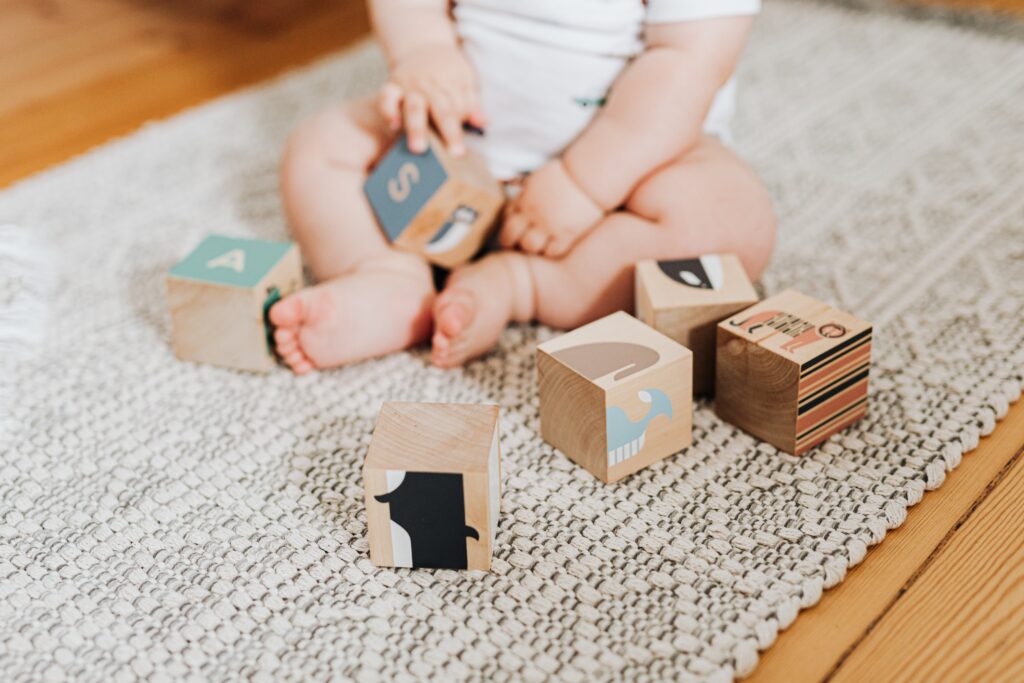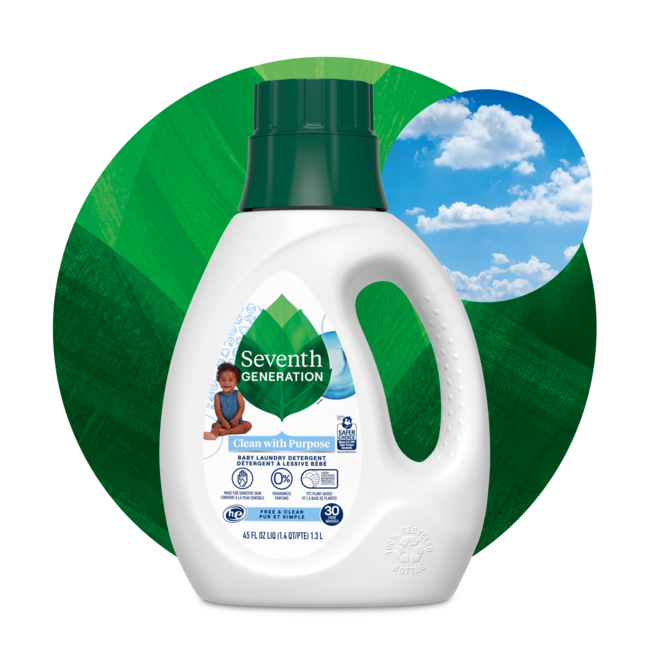It is a well-known fact that disposable diapers are terrible for the environment. But do you know what other parts of early childcare also pose environmental threats? Whether you are a new parent or have a child on the way, check out our “5 Sustainability Hacks for Expecting Parents” list to start on the right foot!
5 Sustainability Hacks for Expecting Parents
- Ditch Fast Fashion: Just like you can buy fair trade, organic clothing for yourself, the same holds true for your baby! You can even consider using hand-me-down clothes or buying at a second-hand store. If you’re yet to have a baby shower or are still working on your registry, give friends a list of brands you trust.

- Select the Right Toys: Would you chew on plastic as an adult? Why, then, are babies and young children so often given plastic toys at a time when they most need to be surrounded by non-toxic materials? Swap the plastic for organic cotton and wood, and choose toys with long lifespans. It’s what’s best for your baby and the environment! You’ll often find such toys at craft fairs and farmers markets, but plenty of options are also available online.

- Breastfeed Mindfully: You never knew breastfeeding could be so complicated until you started doing it yourself! To cultivate a more eco-friendly routine, favor reusable over disposable varieties when it comes to nursing pads and milk storage bags. You can also opt for silicone, not plastic, bottles!
- Check the Labels on Cleaning Products: For the health of your baby and the environment, choose sustainable, non-toxic detergents, baby wipes, and other cleaning products. For instance, try Seventh Generation’s Baby Liquid Laundry Detergent and take advantage of DIY recipes for homemade surface cleaners.

- Avoid Disposable Diapers: Once you get used to washing reusable diapers and refine your diaper-changing technique, you’ll find it’s not all that difficult or gross. You’ll also save a lot of money by investing in cloth diapers. Learn more about diapers’ environmental impact here.
 Food
Food Farmers
Farmers Sustainable Living
Sustainable Living Living Planet
Living Planet News
News